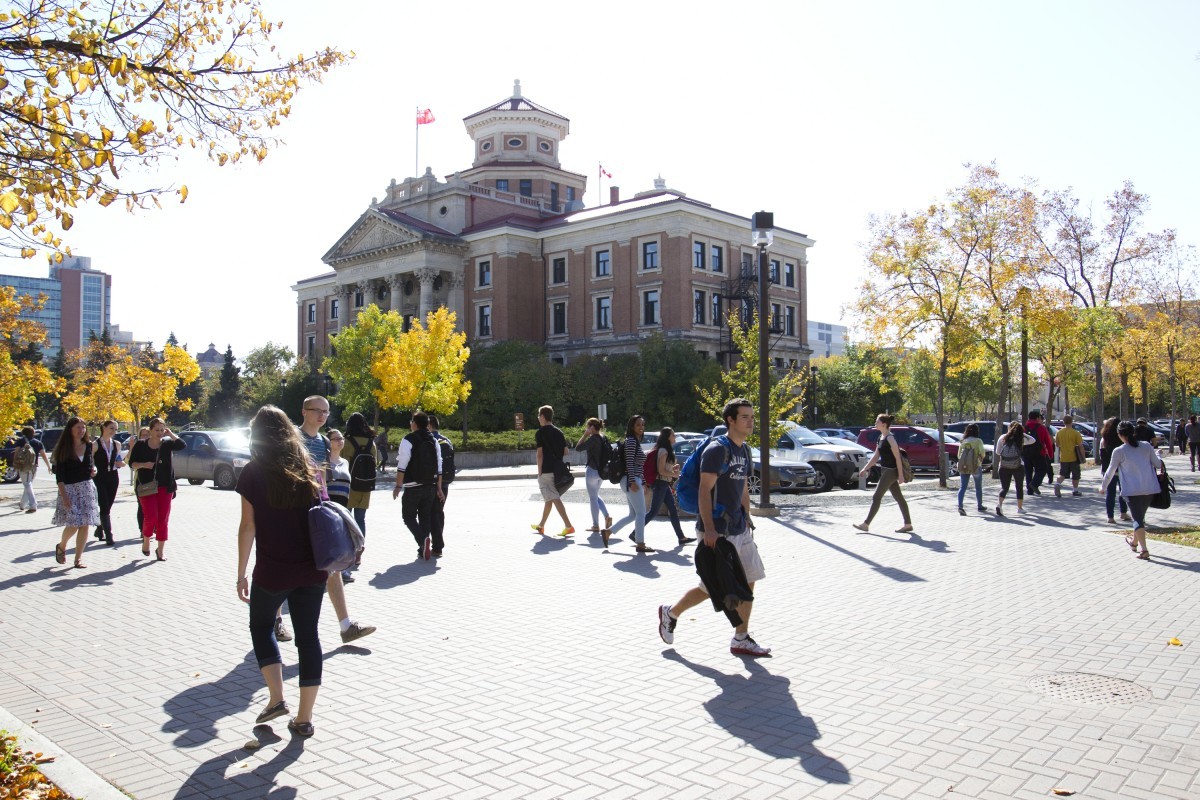
Students on Fort Garry campus.
The Western Producer: The knowledge worker quandary
As The Western Producer reports:
Hewers of wood and drawers of water.
For decades, economists and ordinary Canadians have used those words to describe the flaws of the economy and the country’s over dependence on natural resources.
Digvir Jayas, research and international vice-president at the University of Manitoba, also believes Canada is over-reliant on resources, but he uses different words to describe the problem.
“Being a resource-rich country, we have relied quite heavily on a growing and digging and shipping economy. A grow, dig and ship economy,” said Jayas, a fellow of the Royal Society of Canada and former Canada research chair in stored grain ecosystems.
It’s debatable if Canada is over dependent on growing things and digging stuff out of the ground, but many experts are concerned the country is moving too slowly toward a knowledge economy, where ideas, technology and innovation are the drivers of growth.
A knowledge economy requires people with expertise, and that could soon be a challenge for Canada’s agri-food sector because most students pursuing a masters or PhD in areas like plant and food science are international students.
Many of those students may leave Canada after earning their graduate degrees, causing a “brain drain” of agriculture and agri-food specialists.
“If you want to have a knowledge ecomomy … the major asset you need is the knowledge worker,” Jayas said. “And the knowledge workers come from qualified people at the masters and doctorate level.”
University of Manitoba statistics show that 24.2 percent of students in the faculty of agriculture’s undergraduate program are international students. At the masters and PhD level the percentage is 53.7 percent.
Jayas, who is from India and was an international student at the U of M and the University of Saskatchewan, was surprised by the 53.7 figure.
He didn’t think it was that high.
The numbers are similar in the college of agriculture and bio-resources at the U of S.
“I would suggest that 55 to 60 percent of our grad students in the college are international students,” said Bob Tyler, associate dean for the college, adding most of the students come from Asia. “China would be number one. India would be number two.”
Tyler doesn’t know how many international students stay. However, he does know that Canada needs experts in plant genomics, food ingredients and animal science.
Read the full story here.
Research at the University of Manitoba is partially supported by funding from the Government of Canada Research Support Fund.






